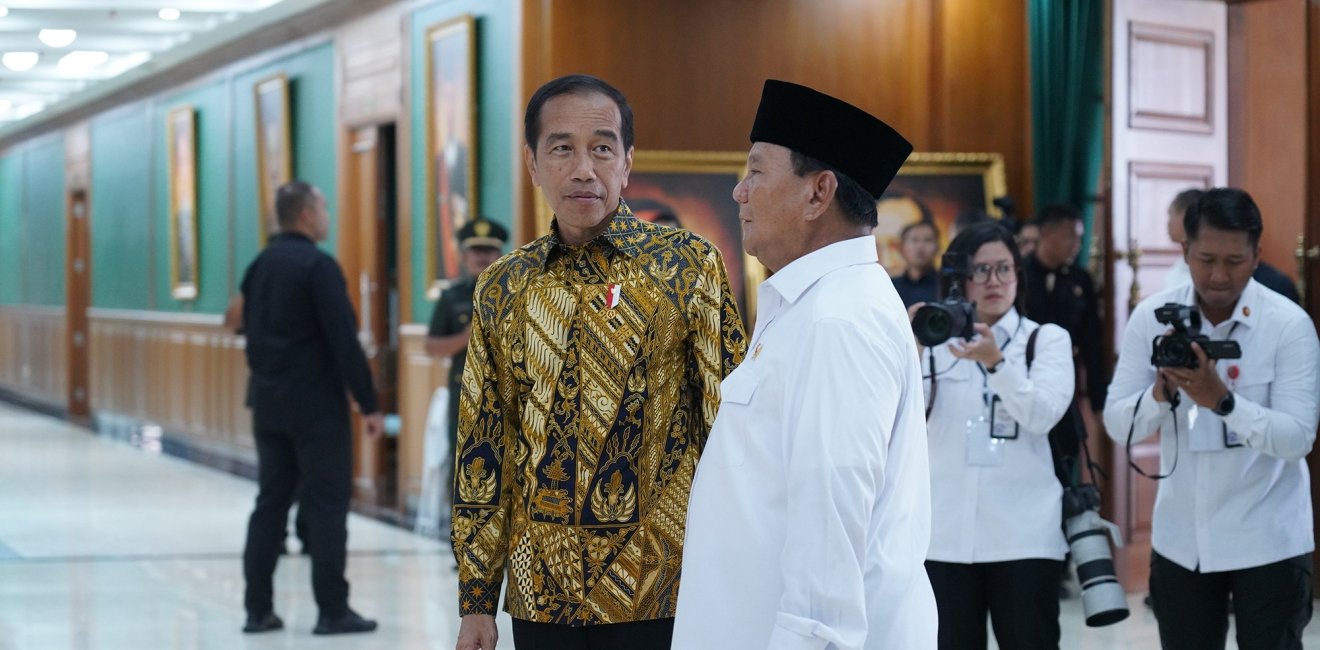
A blog of the Indo-Pacific Program
After two-terms under President Joko “Jokowi” Widodo, Indonesia–the world’s third-largest democracy–went to the polls on February 14th in its fifth democratic election since the fall of Suharto in 1998. Facing a choice between Prabowo Subianto, the outgoing Defense Minister and a former general accused of human rights violations; Ganjar Pranowo, former governor of Central Java and candidate for Jokowi’s party (but, importantly, not Jokowi’s anointed successor); and Anies Baswedan, a former governor of Jakarta who has courted conservative Islamic groups, Indonesians overwhelmingly chose Prabowo with 58 percent of the vote per unofficial tallies. This choice matters, both for its implications for Indonesian democracy and for US-Indonesia relations.
The race to succeed Jokowi witnessed a whirlwind of political maneuvering. Politics in Indonesia tend to favor personality over policy, as well as feature entrenched political dynasties and patronage networks. Exemplifying these dynamics, Prabowo was once Jokowi’s fierce rival in two previous elections before entering the cabinet as Defense Minister following their political reconciliation. In this election, Prabowo selected Jokowi’s son, Gibran Rakabuming Raka, as his vice presidential candidate. This marked Prabowo as Jokowi’s chosen successor despite Jokowi’s own party, the Indonesian Democratic Party of Struggle, running Ganjar. Tense relations between party leader Megawati Sukarnoputri (herself the child of independence leader Sukarno and a former president) and Jokowi contributed to the divide, as did Jokowi’s own efforts to solidify lasting influence for himself and his family after his term ends.
Immune to their efforts, Prabowo clinched the victory in one round, helped by the implied but clear favor of the immensely popular Jokowi.
Prabowo’s opponents ultimately proved unable to defeat his strong lead in the polls over the past few months. Ganjar ran on continuing Jokowi’s legacy of domestic economic focus and Anies garnered the support of conservative Islamic organizations, but neither made much headway. Facing declining positions in the polls leading up to the election, Prabowo’s rivals even floated endorsing each other in the event of a run-off to defeat the former Defense Minister. Immune to their efforts, Prabowo clinched the victory in one round, helped by the implied but clear favor of the immensely popular Jokowi.
Indonesia’s Democratic Bill of Health
When viewed in the context of the past two decades, Indonesia’s election is a triumph and something for Indonesia to be rightly proud of. By holding a fifth successful presidential election, Indonesia signals that it stands out as one of the stronger democracies in a region beset by rising authoritarianism.
But, for many observers, incoming President Prabowo’s record of authoritarian rhetoric and allegations of human rights violations—he even received a ban from entering the United States prior to his appointment as Defense Minister—raise concerns about the potential for damage to Indonesia’s democratic institutions. While others highlight that Indonesian democracy remains entrenched, concerns about Indonesia’s institutions under a President Prabowo are warranted.
The years after Cold War-era strongman Suharto’s fall in 1998 held the promise of reformasi and deepening democratization. Yet, democratization slowed significantly under Jokowi. It even reversed in some ways, including with the growing repression of critics, the weakening of anti-corruption measures, and Jokowi’s backdoor involvement in the 2024 election.
Despite originally billing himself as a political outsider and reformer, Jokowi has worked to establish his own political dynasty. The selection of Jokowi’s son, Gibran, as Prabowo’s running mate required a special exemption to a law barring individuals under 40 from running for the office. This was granted in a controversial decision by the Constitutional Court overseen by Jokowi’s own brother-in-law. The judge in question was then removed for the conflict of interest after the fact, but the decision stood, paving the way for Prabowo’s victory. Now, with Prabowo at the helm in Jakarta, the long-term health of Indonesia’s democracy bears watching.
Implications for US Foreign Policy?
From a US perspective, Prabowo’s election matters for more than just the state of Indonesia’s democracy. Jakarta’s strategic location in the Indo-Pacific, sheer size, and its burgeoning leadership role in the Global South and Southeast Asia necessitate US attention.
In short, the contours of Indonesian foreign policy and its positioning vis-à-vis the United States and China are unlikely to change much under the incoming president. Indonesia has long practiced an “independent and active foreign policy” via hedging behavior designed to protect against dependence on or vulnerability to outside powers.
That said, we can expect Jakarta under Prabowo to continue cautiously embracing—and perhaps accelerate—a more active foreign policy in line with Indonesia’s size and de facto leadership in ASEAN. In particular, Prabowo appears to focus more on foreign policy when compared to Jokowi, especially regarding security issues.
This presents an opportunity for Washington. The US-Indonesia relationship needs substantial policymaker attention, and bilateral ties are best described as having a high floor but a low ceiling.
The US-Indonesia relationship needs substantial policymaker attention.
On the positive side, the 2023 Comprehensive Strategic Partnership and increasing security cooperation signal an appetite in both Washington and Jakarta for growing the partnership. Moreover, security ties are the persistent bright spot in US-Indonesia relations. Incoming President Prabowo inked a Defense Cooperation Agreement with US Secretary of Defense Lloyd Austin in late 2023, US B-52H bombers deployed to Indonesia, Jakarta signed a deal to purchase F-15 fighters, and maritime security cooperation continues to deepen. Given Prabowo’s clear interest in security issues and existing relationship with the US defense community, this should be a clear and high-ranking priority for engagement.
But, at the same time, mutual frustrations prove a hindrance to bilateral relations. Washington views Indonesia as a key battleground for influence in great power competition. Many also express concerns regarding Jakarta’s close relationship with Beijing.
Across the ocean, many in Indonesia are quietly exasperated with aspects of US policy. China may be untrustworthy and a looming security threat, but, from the point of view of many in Jakarta, it delivers on its economic investments—albeit often late or over budget.
Washington has a troubling tendency to over-promise and underdeliver on the economic side of the relationship. Many in Jakarta view the Indo-Pacific Economic Framework (IPEF) as devoid of substance, particularly given that market access to the United States is off the table. Moreover, the $20 billion Just Energy Transition Partnership (JETP) has been slow to get off the ground, while US domestic opposition derailed a proposed limited free trade agreement on critical minerals. On the diplomatic front, Jakarta felt slighted when President Biden skipped the annual ASEAN Summit in 2023, and the United States and Indonesia disagree sharply over the Hamas-Israel war.
In light of these challenges, the United States should invest the time and effort to build on the relationship it cultivated with Prabowo while he was Minister of Defense and prioritize Indonesia in 2024. Beyond expanding cooperation on security affairs, the United States should endeavor to scale up economic and diplomatic engagement. This could include reconsidering the proposed limited free trade agreement on critical minerals and investing in infrastructure. At the same time, the United States must be careful to avoid endorsing any anti-democratic action Prabowo may take.
Although Prabowo’s election brings real concerns about the state of Indonesia’s democracy, there are strong national interests that necessitate deepening US-Indonesia relations. Indonesia is the largest country in Southeast Asia and a key pillar of the Indo-Pacific. If the United States is serious about increasing its role in the region, Indonesia is a natural partner, and its new administration will require renewed policymaker attention.
Follow Lucas Myers on Twitter @LucasDeanMyers.
The views expressed are the author's alone, and do not represent the views of the U.S. Government or the Wilson Center. Copyright 2024, Asia Program. All rights reserved.
Author


Indo-Pacific Program
The Indo-Pacific Program promotes policy debate and intellectual discussions on US interests in the Asia-Pacific as well as political, economic, security, and social issues relating to the world’s most populous and economically dynamic region. Read more





